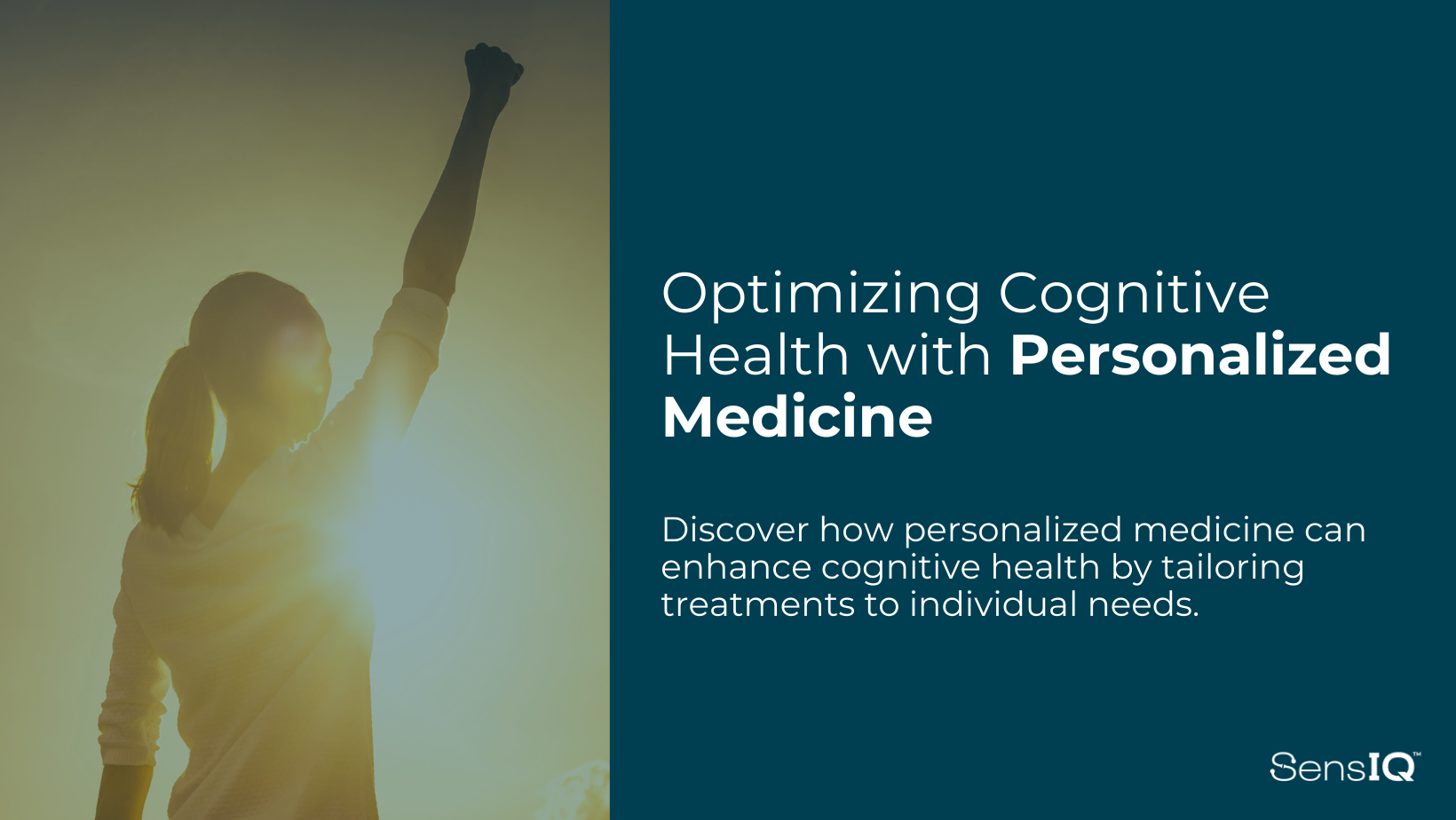Understanding Personalized Medicine in Cognitive Health
Personalized medicine in the context of cognitive health refers to tailoring treatments to the specific needs of individual patients. It recognizes that every person is unique and that their cognitive health needs may vary.
By understanding the genetic, environmental, and lifestyle factors that contribute to cognitive health, personalized medicine aims to optimize treatment outcomes by providing targeted interventions.
This approach takes into account factors such as a patient’s genetic predisposition, their lifestyle choices, and their response to previous treatments. It allows healthcare providers to develop personalized treatment plans that address the specific needs of each patient.
Benefits of Customized Treatments for Cognitive Health
Customized treatments in cognitive health offer several benefits for patients. By tailoring treatments to individual needs, personalized medicine can improve treatment outcomes and enhance patient satisfaction.
One of the key benefits is the potential for more effective interventions. By considering a patient’s unique genetic makeup and other relevant factors, healthcare providers can develop treatments that target the underlying causes of cognitive health issues.
Personalized medicine also allows for a more proactive approach to cognitive health. By identifying risk factors and potential issues early on, healthcare providers can implement preventive measures and interventions that may delay or mitigate the progression of cognitive decline.
Furthermore, personalized medicine promotes patient-centered care. It recognizes that each patient has unique needs and preferences, and by tailoring treatments accordingly, healthcare providers can improve patient engagement and adherence to treatment plans.
Challenges and Limitations of Personalized Medicine in Cognitive Health
While personalized medicine holds great promise for cognitive health, it also faces several challenges and limitations.
One challenge is the complexity of analyzing and interpreting genetic and other biomarker data. The field of genomics is rapidly evolving, and healthcare providers must stay updated with the latest research and technologies to effectively incorporate personalized medicine into their practice.
Another limitation is the availability and accessibility of personalized medicine technologies and resources. Not all healthcare facilities may have the necessary infrastructure or expertise to implement personalized medicine approaches, which can limit its widespread adoption.
Ethical considerations also come into play when implementing personalized medicine in cognitive health. Privacy concerns, consent issues, and potential disparities in access to personalized treatments are important factors that need to be carefully addressed.
Additionally, personalized medicine is not a one-size-fits-all solution. While it can greatly benefit many patients, there will still be cases where personalized interventions may not be feasible or may not yield significant improvements.
Overcoming these challenges and limitations requires ongoing research, collaboration, and investment in personalized medicine technologies and infrastructure.
Innovations and Future Directions in Personalized Medicine for Cognitive Health
The field of personalized medicine in cognitive health is constantly evolving, with ongoing innovations and future directions that hold great promise.
Advancements in genomics and other biomarker technologies are allowing for more accurate and comprehensive assessments of an individual’s cognitive health. This can lead to improved diagnostics, risk prediction, and targeted interventions.
Artificial intelligence and machine learning algorithms are also being developed to analyze large datasets and identify patterns that can inform personalized treatment plans. These technologies have the potential to enhance the accuracy and efficiency of personalized medicine approaches in cognitive health.
Furthermore, research into novel biomarkers and therapeutic targets is expanding our understanding of cognitive health and paving the way for more targeted and effective treatments.
Collaboration between researchers, healthcare providers, and technology developers is crucial for driving these innovations and shaping the future of personalized medicine in cognitive health.
Implementing Personalized Medicine in Clinical Practice
Implementing personalized medicine in clinical practice requires a multidisciplinary approach and collaboration among healthcare professionals.
Healthcare providers need to stay updated with the latest research and guidelines in personalized medicine to effectively integrate it into their practice.
Additionally, personalized medicine requires comprehensive patient assessments that take into account genetic, environmental, and lifestyle factors. This may involve genetic testing, cognitive assessments, and gathering relevant medical and family history.
Healthcare providers also need to educate patients about the benefits and limitations of personalized medicine and involve them in the decision-making process. This shared decision-making approach promotes patient engagement and empowers individuals to actively participate in their own cognitive health management.
Furthermore, healthcare systems need to invest in the necessary infrastructure, resources, and training to support the implementation of personalized medicine approaches. This includes establishing partnerships with genetic testing laboratories, developing data analysis capabilities, and ensuring the privacy and security of patient information.
By overcoming these implementation challenges, personalized medicine can become an integral part of clinical practice, leading to improved cognitive health outcomes for patients.
Embracing Personalized Cognitive Health with SensIQ
In line with the principles of personalized medicine, SensIQ offers a unique approach to enhancing cognitive health through our innovative quiz. This tool is designed to tailor cognitive health solutions to the individual needs of each patient. By taking the SensIQ quiz, patients can receive personalized recommendations for nootropic supplements that align with their specific cognitive profiles and health goals. This approach not only complements the personalized treatment plans developed by healthcare providers but also empowers patients to take an active role in managing their cognitive health.

